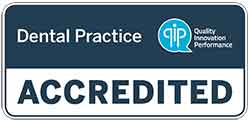Teaching your child proper oral care at a young age is an investment in his or her health that will pay lifelong dividends. You can start by setting an example; taking good care of your own teeth sends a message that oral health is something to be valued. Anything that makes taking care of teeth fun, like brushing along with your child or letting them choose their own toothbrush, also encourages proper oral care.
To help your children protect their teeth and gums and greatly reduce their risk of getting cavities, teach them to follow these simple steps:
Brush twice a day with fluoride toothpaste to remove plaque, the sticky film on teeth that is the main cause of tooth decay.
Floss daily to remove plaque from between your teeth and under the gumline, before it can harden into tartar. Once tartar has formed, it can only be removed by a professional cleaning.
Eat a well-balanced diet that limits starchy or sugary foods, which produce plaque acids that cause tooth decay. When you do eat these foods, try to eat them with your meal instead of as a snack. This limits the frequency of acid attacks on the teeth.
Use dental products that contain fluoride, including toothpaste.
Take your child to the dentist for regular check-ups.











